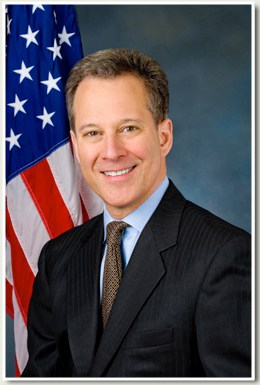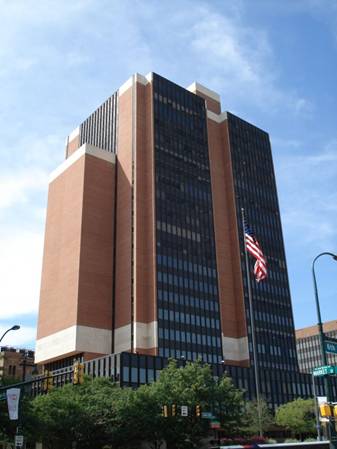 Consumer groups and New York State Attorney General Eric Schneiderman are expressing concern over the performance of the New York Public Service Commission in its year-long review of telecommunications services in New York.
Consumer groups and New York State Attorney General Eric Schneiderman are expressing concern over the performance of the New York Public Service Commission in its year-long review of telecommunications services in New York.
As Stop the Cap! shared in our own letter to the PSC, we share concerns about how the PSC is managing comments from the public and accepting testimony for a review that many find opaque.
The Connect New York Coalition has exchanged its own frank letters with the Commission for several months expressing concern about how the PSC is conducting its review. A letter dated July 6 summarized a year of difficulties dealing with state regulators:
We filed a Petition a year ago. It contained complaints and requests for action by the Commission. It was ignored for several months.
We requested a meeting with the Chair. The meeting was constructive. Several promises were made including the imminent production of a “roadmap” for a study, a promise that it would be concluded by the April 1, 2015 date committed to in a side letter, a promise of “robust dialogue”, and a promise that the concerns raised in the Petition would be included in Commission actions.
We mean no disrespect when we express astonishment at the June 26 letter. It is as though the Petition, the letters, the meetings and the promises have not languished in Commission inaction for a full year. It is as though we have received a “road map” and had participated in a “robust dialogue”. It is as though the Commission in its documents and “questions” has addressed the issues and complaints contained in the Petition. It is as though the Commission produced the Study it promised in the side letter. None of these things has happened.
[…] A constructive relationship, based on civility and mutual respect, is not advanced by assertions that the Petition has been acted on as it should and as was promised. All of this is secondary to the sad realities that are faced by millions of New Yorkers whose telecommunications systems are neither socially nor economically adequate. The system, for many, operates in violation of the laws of the state.

Schneiderman
“Issues of misallocation of monies, inadequate basic service requirements, disinvestment in the copper systems, failure to build out promised telecommunications systems, failure to adequately measure the deterioration of service to millions of New Yorkers and others have been ignored by the Commission in spite of promises to take them seriously,” complained the Coalition in another letter dated June 25.
Late yesterday Attorney General Schneiderman added his views, nearly identical to our own and that of the Coalition:
“While the Staff Assessment of Telecommunications Services you issued on June 23 is a step toward fulfilling the legal requirement that the PSC undertake a comprehensive examination and study of the telecommunications industry in New York, it left many questions unanswered, questions unlikely to be answered through the public statement hearing process, as that process is non-adversarial,” Schneiderman wrote. “Therefore, to fully understand the impact of deregulation on consumers and businesses, I urge you to initiate a formal proceeding in accordance with Article 1, Section 5 of the Public Service Law and 16 NYCRR Part 3. Such a proceeding, in front of an administrative judge, provides for evidence-gathering, allows for cross-examination and counter-evidence, and concludes with a final order or decision by the PSC.”
The Attorney General wants answers to a series of questions many New Yorkers have asked for several years:
 Whether there is adequate competition for broadband service throughout the various regions of New York State, and whether there are any areas that are still essentially cable monopolies;
Whether there is adequate competition for broadband service throughout the various regions of New York State, and whether there are any areas that are still essentially cable monopolies;- Whether telecommunications companies are making honest representations about infrastructure build-out;
- Whether consumers are satisfied with the various voice service options available to New York consumers; and
- Whether Verizon is adequately upgrading or repairing its copper wire infrastructure, which is especially critical for New Yorkers who rely solely on landline service (in the absence of other voice options).
In our view, the answers are:
- No, Yes
- No
- It depends on where you live in the state, which incumbent phone company you have, if you have cable as an option, and if you have adequate cell coverage.
- Evidently not, based on the long record of service complaints from consumers.
Late yesterday, the PSC indicated it was responsive to the complaints, issuing a notice extending the review process and comment window:
In recognition of these requests, this is to advise that the deadline to file comments is hereby extended 60 days until October 23, 2015 in order to facilitate meaningful input, accommodate various schedules, and promote the fair, orderly and efficient conduct of this proceeding. Following the submission CASE 14-C-0370 -2- of comments, Staff will consider the need for further process, which could include further Public Statement Hearings, Technical Conferences or other steps as deemed necessary. Notices would be issued regarding any such events.


 Subscribe
Subscribe It didn’t take long for consumers to start flooding the Federal Communications Commission with thousands of complaints about poor Internet service, usage caps, and speed throttles.
It didn’t take long for consumers to start flooding the Federal Communications Commission with thousands of complaints about poor Internet service, usage caps, and speed throttles. No more Netflix and Hulu watching for this family: “I have to tell my kids to stop using YouTube and other services and stuff they need for school so we don’t go over the cap,” another consumer wrote, explaining that their Internet-enabled home security camera uses up a significant amount of their monthly data. “By Comcast having this data cap, I don’t have a open Internet … I also think this data cap is very inaccurate, it goes up without anybody being home, and sometimes by a lot.”
No more Netflix and Hulu watching for this family: “I have to tell my kids to stop using YouTube and other services and stuff they need for school so we don’t go over the cap,” another consumer wrote, explaining that their Internet-enabled home security camera uses up a significant amount of their monthly data. “By Comcast having this data cap, I don’t have a open Internet … I also think this data cap is very inaccurate, it goes up without anybody being home, and sometimes by a lot.” Are you paying Windstream for
Are you paying Windstream for 
 A Philadelphia woman is
A Philadelphia woman is 


 Bahrami responds Time Warner’s attitude is based on a distinction without much difference because he is effectively being told CNS must pay extra for a suitable connection with Time Warner to guarantee his web visitors will have a good experience.
Bahrami responds Time Warner’s attitude is based on a distinction without much difference because he is effectively being told CNS must pay extra for a suitable connection with Time Warner to guarantee his web visitors will have a good experience.